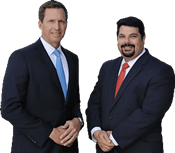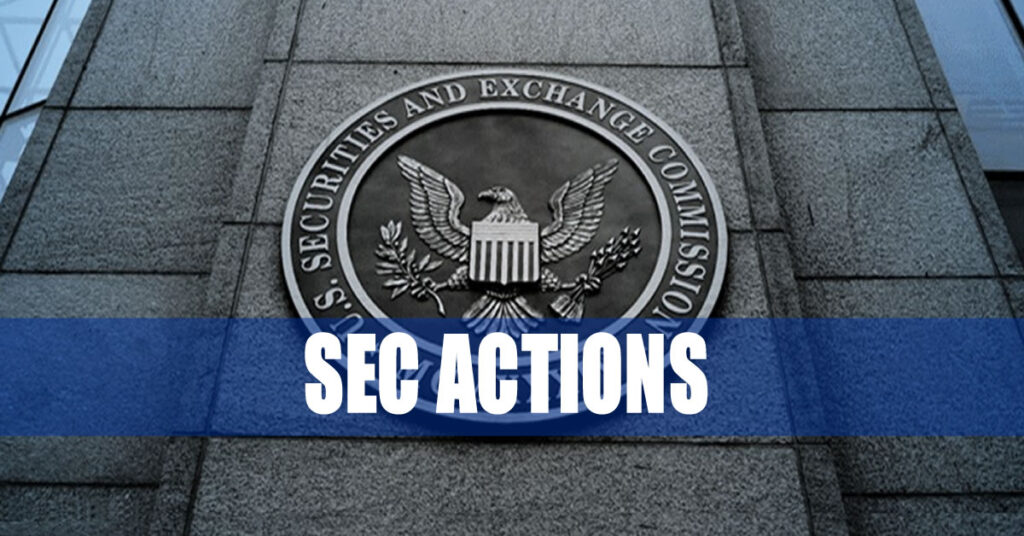I aim to highlight certain recent SEC filings that underscore the need for alertness within the investment sector. Just last week, the SEC initiated several civil lawsuits and, interestingly, opted for no administrative actions, excluding any subsequent or connected proceedings.
Offering fraud. SEC v. Pagartanis, Civil Action No. 25242, initiated on October 7, 2021, focuses on Steven Pagartanis as the defendant. As an investment professional, Pagartanis sold investment products based on untrue claims and misused investor funds. In a parallel criminal case, Pagartanis confessed to conspiracy to commit fraud via wire and mail, earning him a sentence of 120 months in jail, followed by three years of supervised release and an order to pay back $6,519594. In the SEC case, he consented to a final judgment barring future securities law violations and was ordered to pay $6,519594, which the restitution in the criminal case satisfies. See Lit. Rel. Rel. 25242 (October 7, 2002).
Offering fraud. SEC v. CanaFarma Hemp Products Corp., Civil Action No. 21 Civ. 8211 (S.D.N.Y. This case names the company’s founders, Vitaly Fargesen and Igor Palatnik. They misled investors about their hemp business from April 2019 to October 2020, claiming it was fully integrated with its own farms – these were falsehoods. More than 60 investors contributed $15 million, with around $4 million reported stolen. The complaint alleges breaches of securities laws and is underway.
Offering fraud: SEC, Civil Action No. 8:21-01610 Ca. Filed on September 30, 2021, this case cites Ron K. Harrison, LLC, and Global Trading Institute, LLC. From 2016 through August 2021, Harrison and his firm acted as unregistered financial advisors, causing client losses of over $2 million while collecting more than $900,000 in fees without disclosing these losses. Harrison had previously been barred by FINRA from the securities industry. The SEC achieved an emergency asset freeze; this case is still pending. Please see it. Rel. Rel. 25241 (October 6, 2002).
Manipulation: SEC v. Melnick, Civil Action No. 1:21-cv-04054 N.D. Ga. This complaint targets Mark J. Melnick, the host of a paid subscription-based radio show. Beginning in January 2018, he influenced the stock prices of various options and stocks, often based on misinformation about certain companies spread on his program. He personally profited by about $374,835 from trades in these companies’ stocks. Alleged violations of securities laws are at the core of this pending case.
 (AD) Lost money because of bad financial advice or outright fraud? You may get it back by filing a complaint. Haselkorn & Thibaut has 50+ years of experience and a 98% success rate. Don’t delay if you’ve suffered losses. (AD) Lost money because of bad financial advice or outright fraud? You may get it back by filing a complaint. Haselkorn & Thibaut has 50+ years of experience and a 98% success rate. Don’t delay if you’ve suffered losses. Call Haselkorn & Thibaut at 1-888-784-3315 for a free consultation, or visit InvestmentFraudLawyers.com to schedule. No Recovery, No Fee. |
False statements: SEC v. Roberts, Civil Action No. 21-cv-1615 Ca. Filled September…
I’d like to conclude with a financial fact that underscores the seriousness of these cases. A study by the National Bureau of Economic Research found that 7% of financial advisors have been disciplined for misconduct, with the majority continuing to work in the industry. Amidst such concerning statistics, it’s crucial for investors to remain informed and vigilant. A quick check of an advisor’s [FINRA CRM number](https://brokercheck.finra.org/) can help ascertain their credibility.
In closing, to echo Warren Buffett, “It takes 20 years to build a reputation and five minutes to ruin it.” Let’s not forget that when dealing with financial decisions and the individuals we entrust to guide us – a few minutes of due diligence can make all the difference.Hello, I’m Emily Carter, a financial analyst and writer who’s been tracking the financial world for quite some time. Today, I want to talk to you about a couple of cases that highlight the importance of due diligence when picking financial advisors and investment opportunities.
Recently, there’s been a buzz about the CEO of TCFG Investment Advisors, LLC, Richard Roberts, who was in the hot seat for misleading clients. From this case, I can tell you about a disturbing trend I’ve noticed – some financial advisors aren’t always upfront about how they make their money.
Over six years, Mr. Roberts told clients that the fees they were paying were partly going to their third-party clearing and custody company. In reality, clients were being charged fees that were not properly disclosed, affecting around 60% of the instances. It’s unacceptable, and the complaint suggests multiple violations of the Advisers Act. The troubling part? This case is still open.
As we peel back the layers on foul play within the financial sector, I’m reminded of a famous quote by Warren Buffett: “Honesty is a very expensive gift. Don’t expect it from cheap people.” This rings especially true when we journey into the realm of criminal cases.
Take the case of Brent Borland, for example. In October 2021, he received a prison sentence of seven years for an offering fraud scheme that ran from 2014. His scam lured investors to put their money into a fund supposedly for developing infrastructure in Belize. They were promised high returns, with about 40 investors pooling together a massive $26 million. It turned out, a significant chunk of that money never made it to Belize; it was misappropriated.
Brent Borland ended up pleading guilty to securities fraud and wire fraud conspiracy. It’s a stark reminder that, even though high returns can be attractive, they often come with high risks – and sometimes, deceit.
In financial dealings, a good rule of thumb is to verify an advisor’s [FINRA CRM number](https://brokercheck.finra.org/), which can provide you with a clarity on their history and any potential red flags. It can be the difference between securing your financial future and falling prey to a fraudulent scheme.
When you’re looking for a financial advisor, you might stumble upon some who have been associated with bad practices. Here’s a quite concerning financial fact to keep in mind: some studies suggest that 7.3% of financial advisors have been disciplined for misconduct. That number may not seem high at first glance, but remember these are professionals entrusted with a critical part of peoples’ lives – their money.
You deserve crystal-clear transparency when you’re entrusting someone with your investments. That means full disclosure on fees, how your advisor is compensated, and any potential conflicts of interest. You should feel confident they’re prioritizing your financial health above their gain.
I can’t stress enough the importance of thorough research and asking hard questions. Look into any advisor’s history, performance, and client reviews. Don’t settle for less than you deserve, because when it comes to your money, every penny should be accounted for and every doubt cleared.
Turning to legal updates within the finance sector, catch up on the pressing issues and make informed decisions. It’s all about protecting and maximizing your financial wellbeing in a world where some might look to cut corners at your expense.
In conclusion, whether dealing with investment advisors or exploring potential investment opportunities, it’s about being alert and informed. Misconduct in finance can have far-reaching consequences, hitting not just your wallet but your trust in the system. So, let’s keep those conversations honest, your eyes wide open, and your investments safer. After all, your financial future is worth it.




